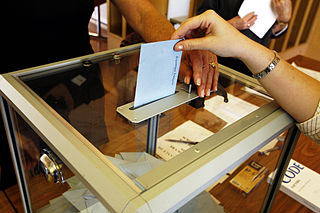
Courtesy of wikipedia.com
I took a late afternoon walk, recently. Already, the sun was bending to the west, shortening and intensifying its rays. Ahead were residential streets lined with trees and well-tended gardens. Knowing I’d be cool, I decided not to turn back for bottled water. Instead, I headed for the shade.
A young couple, both without face masks, mirrored my progress from the opposite side of the street. They were so engaged in conversation, they failed to acknowledge an African American man who was sprawled on the pavement in front of them, exposed to the grilling sun. Without breaking stride, they circled around him and continued on their way.
After the couple had passed, I crossed the street to make sure the man, about 50, was breathing. He was. The wine bottle at his side suggested his trouble wasn’t his heart. Rather, he was sleeping off a drunken stupor. I reached into my pocket for my cell phone to dial 911 when a young woman dropped from her bike to stand beside me. Next, she removed her helmet, which allowed me to discover she was somewhere in her early twenties, her blonde hair pulled back in a ponytail.
‘Is he breathing?” she asked, gazing down at him.
“Yes,” I replied. “Inebriated, I think. I was about to call 911.”
“Oh, don’t do that.” Her voice was stern enough to give me pause. “We need to get him to shade where he can sleep if off.”
Not waiting for my assent, she steadied her bike, then bent over the man to speak to him. At the sound of her voice, he opened his eyes but didn’t respond to her questions.
By this time, two young men approached from different directions. Both offered to help. Instead of greeting either of them, the young woman pointed to a small tree near the curb. “We need to pull him over there. Into that shade.”
The young men snapped to attention as if they’d been addressed by a drill sergeant and, taking the fallen man by the arms, they began to pull him toward the tree. Unfortunately, his trousers refused to go with him. “Stop,” the bicyclist barked to her volunteers. Then she reached down to straightened the man’s trousers. Only when she was satisfied with her arrangement did she allow the effort to continue.
Standing to one side, I watched as these good Samaritans went about their labor. It felt good to allow the younger folks to take charge. Calling 911, I realized, would have gotten the inebriate a shower, a meal and a bed for the night. But he’d soon be released to streets and on another day, another person would find him sprawled across another pavement. Our society fails the addicted miserly. To get the man out of the sun was as good an idea as mine. Satisfied I could be of no help, I walked on.
The sight of someone crippled by disease is gut wrenching. We’ve all experienced it, one way or another. Even so, I was heartened to see how ably the young woman took charge of the fallen man and grateful, too, to the young men who’d stopped to help, taking her direction without question.
Supporting those willing to accept responsibility is the glue that holds a society together, especially in a democracy. Most people who serve in public life have good intentions, believe it or not. They falter or become corrupted when they encounter the vested interests of the powerful. To defend the rights of the people can be an enormous risk, not only to one’s job but to one’s reputation. There is much power in the people, but only if they are awake. if they are too busy with the rigors of their daily lives, if they fail to recognize their champions, then those champions are easily vanquished. For a democracy to work, it requires more than capable leaders; it requires informed citizens.
As the 2020 election draws near, comments on my Facebook page begin to crackle with discontent. The fate of the post office has started a bonfire. Who’s in charge?” people cry. The answer is, they are and their leaders are already in place. If those full of outrage were informed, already they’d have sent thank you notes to Representative Joe Neguse of Colorado and Senator Amy Klobuchar of Minnesota.
No individual can be aware of all of the issues all of the time. But those we say we care about deserve our attention. We get the government we deserve when we fail to support those who are working on our behalf.
The young bicyclist who cared enough to help a fallen man earns my respect. But the two men who stopped to give her support also deserve respect. In a vibrant democracy, we are sometimes called upon to accept leadership, and sometimes we are called upon to follow. One obligation is no more important than the other. But, both require us to be informed.
